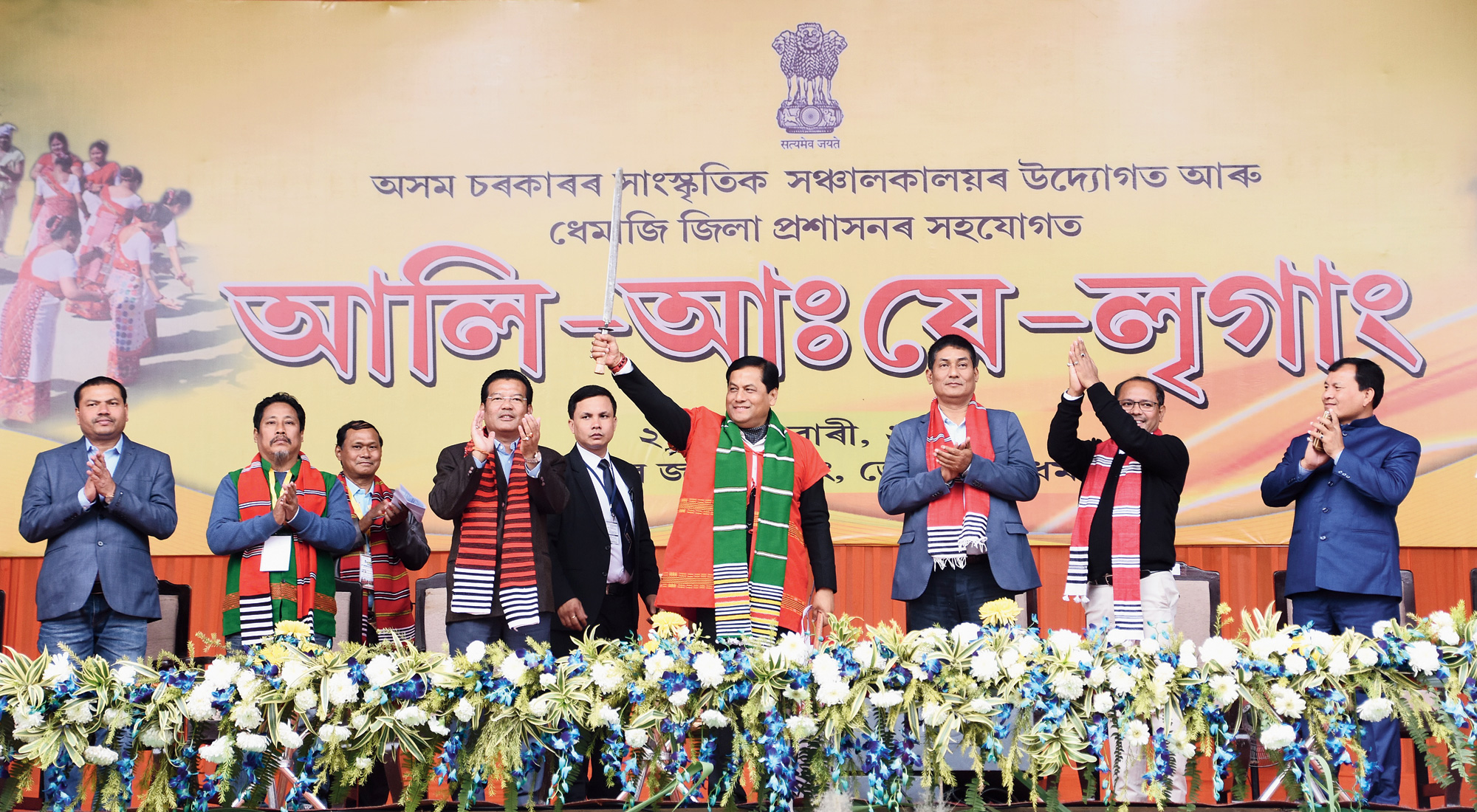The safety and security of the indigenous identity is mainly on the shoulders of the next generation and only education can enable us to take our cultural heritage to the world, said Assam chief minister Sarbananda Sonowal while attending the Ali-Aye-Ligang festival at Bijoypur village (Jonai) in Dhemaji district on Wednesday.
Sonowal also said the government is working on giving land pattas (deeds) to the landless indigenous people.
For the first time, the Mising community is celebrating the Ali-Aye-Ligang under the aegis of the directorate of culture with the help of Dhemaji district administration.
Speaking at the festival, Sonowal stressed on the protection and preservation of tradition and culture and said the government will ensure the safety and security of indigenous identity.
Lakhimpur MP Pradan Baruah, minister Naba Kumar Doley, Dhemaji deputy commissioner M.P. Singh and superintendent of Dhemaji police R. Reddy were also present at the function.
Ali-Aye-Ligang literally stands for sowing of roots and fruits. Ali means seeds, aye means fruits and ligang means sowing. The celebration of Ali-Aye-Ligang marks the beginning of the cultivation of ahu and bau crops.
Prayers, dance and feasts are integral to the festival and it is an age-old belief that more the people dance during the festival, the more bountiful their paddy fields will be.
“We believe that the more we dance the more bountiful our paddy fields will be. That’s why we can't but dance on this auspicious day. But the dance is also spontaneous, the joy of the beginning of the farming season makes us cheerful as our community is dependent on agriculture,” Mising Autonomous Council executive councillor Joygeswar Kutum told The Telegraph. He appreciated the government’s effort to bring the festival closer to other communities.
The stalls of indigenous cuisine and attires attracted the public on the occasion and the organising committee made all necessary arrangements for the success of the program. Mising oh-nitam (folk song) was sung by the youth and lotta soman (group dance), a common cultural practice, entertained the audience.











